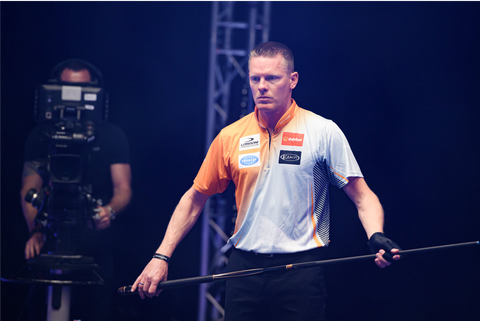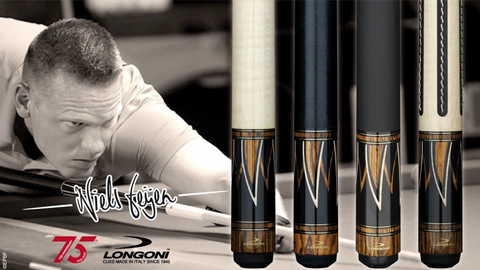The “Cue and A”: How to Choose the Right Pool Cue!

Now that we have found out why it is important to choose the right pool cue, it is time to answer the most important question: HOW do I choose the right pool cue?”
Luckily for you, I have the answers you are looking for!
The pool cue, like every other instrument, has several different but equally crucial aspects. When having to choose the right cue, all of these aspects have to be taken into consideration as they can and will determine the quality of your game. These aspects, including the material of both the cue itself, the cue tip as well as the weight and size of the pool cue will make a difference in the nature of your game - something you do not want to put at risk.
That being said, let’s get into the discussion about what actually combines a good pool cue and how to be able to know if it indeed is the right cue for you.
#1 Size Matters
Contrary to what people may think, the size of the pool stick does matter and it is the first factor that needs to be considered when purchasing a pool cue.
My best advice, when deciding about your pool cues length, is to be mindful of your own height. For instance, the most standard length of a pool cue is 58 inches, which translates to approximately 147 cm.
However, for players above the average height, this length would not be appropriate, which is why you can get small “extensions” to put on the butt of the cue to extend the length. These extensions are also very handy when having to stretch for a shot instead of using the bridge. Extensions are virtually weightless and do not affect the balance.

#2 Weight Matters Too!
Just like the length of the cue, another important aspect is the weight.
Actually, the weight of the cue, more often than not, comes as a secondary factor even though, in my humble opinion, it should not be. Your skills can indeed be affected dramatically by the weight of your cue, so be very careful and please know that most players begin with a 19 oz. cue. Using a lighter weight stick (18-19 oz.) can give more “snap” in your stroke.
Since the pool cues are available in different weights, you may ask how exactly to determine what weight is suitable for you?
I would recommend that the butt should not feel ‘too light’ nor ‘too heavy’, but please note that it is the weight of the complete cue, including the shaft, that should give you a relaxed and suitable feeling in your hand.
The truth is - even though the cue’s weight is distributed throughout the whole cue, most of the weight lies in the butt end since it, without an exception, is always much heavier than the shaft. This only means that the heaviest part of the cue itself lies within your backhand.
In general, the weight of the pool cues differs between 17 and 21 oz, which translates to 0.48 kg to 0.6 kg. Cues’ with a weight that ranges between 17 and 20 oz (0.4 kg to 0.5 kg) are considered ‘lighter’ cues, while the ones ranging between 20 to 21 oz (0.5 kg to 0.6 kg) are considered ‘heavier’. The most common weight, however, is between 18,5 oz - 19,5 oz (0.51 kg to 0.54 kg) for a playing cue. For a break cue, it is slightly heavier.
With this in mind, I highly suggest trying out several different weights if you are looking to buy your first pool cue. This way, you will be able to find out which cue feels comfortable in your hand as well as how much control that specific cue weight allows in your overall game. If you already have a cue, but wish for another and perhaps higher quality cue, you can use the weight and balance of your existing cue to help choose your new cue.

#3 The Tip – Why is it so important?
If you thought that the cue tip is not as important as the length and the weight of the pool cue, you got this all wrong.
Opposite to the pool stick, the tip is the actual part of the cue that interacts with the ball, which means that it determines the ball’s reaction to your shot. When choosing the cue tip, it is vital to opt for a material and hardness that attributes to your own specific game style and which also fits your shaft!
The softer tips do have a tendency to put a higher spin on the cue ball and have more grip on soft draw shots, while the harder tips do not. The harder tips also are known to last much longer than the soft tips. If you are playing with a fiber shaft, it is a good idea to check with your maker of your shaft and ask what kind of tip would be suitable.
Oh, and yes - let’s not forget the size of the tip!
Just like the pool cues, the cue tip comes in different sizes too. The standard size of the tip is 13 mm, however, nowadays, 12,4 mm and 12,8 mm tip sizes are considered very standard. The smaller the tip, the more spin it puts on the ball and the greater the chance is to miss your target with a so-called ‘miscue’.
Most important is that the cue tip fits your type and size shaft and that it is not to hard or too soft, and also not too high or too low. In conclusion - it all comes down to your own preference and game style.

#4 Wrapping It Up!
As already mentioned, the pool cue’s butt helps determine your shot since it is the part of the pool cue that you hold most tightly. This is why choosing the wrap of the pool cue is completely subjective and massively different for all players. The butt of the cue - as the part that touches your skin the most, logically, greatly affects the grip and therefore also the control you have over the shot.
The different cue sticks’ grip options that are available are no wrap, leather, leather strips or linen.
So, interestingly enough, to find out which material would work the best for you, you have to be completely honest with yourself.
I know, we have all been there, and it is not easy to admit you have sweaty hands, but such an insight will change the game for you. Quite literally. If you do sweat a lot, I advise you to stay away from pool cues with bare wood as they will not provide a good grip for you and will ultimately become slippery. The same applies for the leather wraps as well.
The Conclusion
Easier said than done. Choosing the right pool cue for you may sound easy, but it really asks for some consideration from your side. That is why I encourage you to go through the points, that we just talked about – only then you will know exactly what you are looking for before purchasing your pool cue.
This does not mean that you should be afraid to change the pool cue if you realize it is not working for you - or when you wish to take your game to the next level, but believe me when I say it - knowing exactly what you look for in a cue will help you recognize “the one” for you as soon as you get your hands on it.
All the best,
Niels ‘THE TERMINATOR’ Feijen

